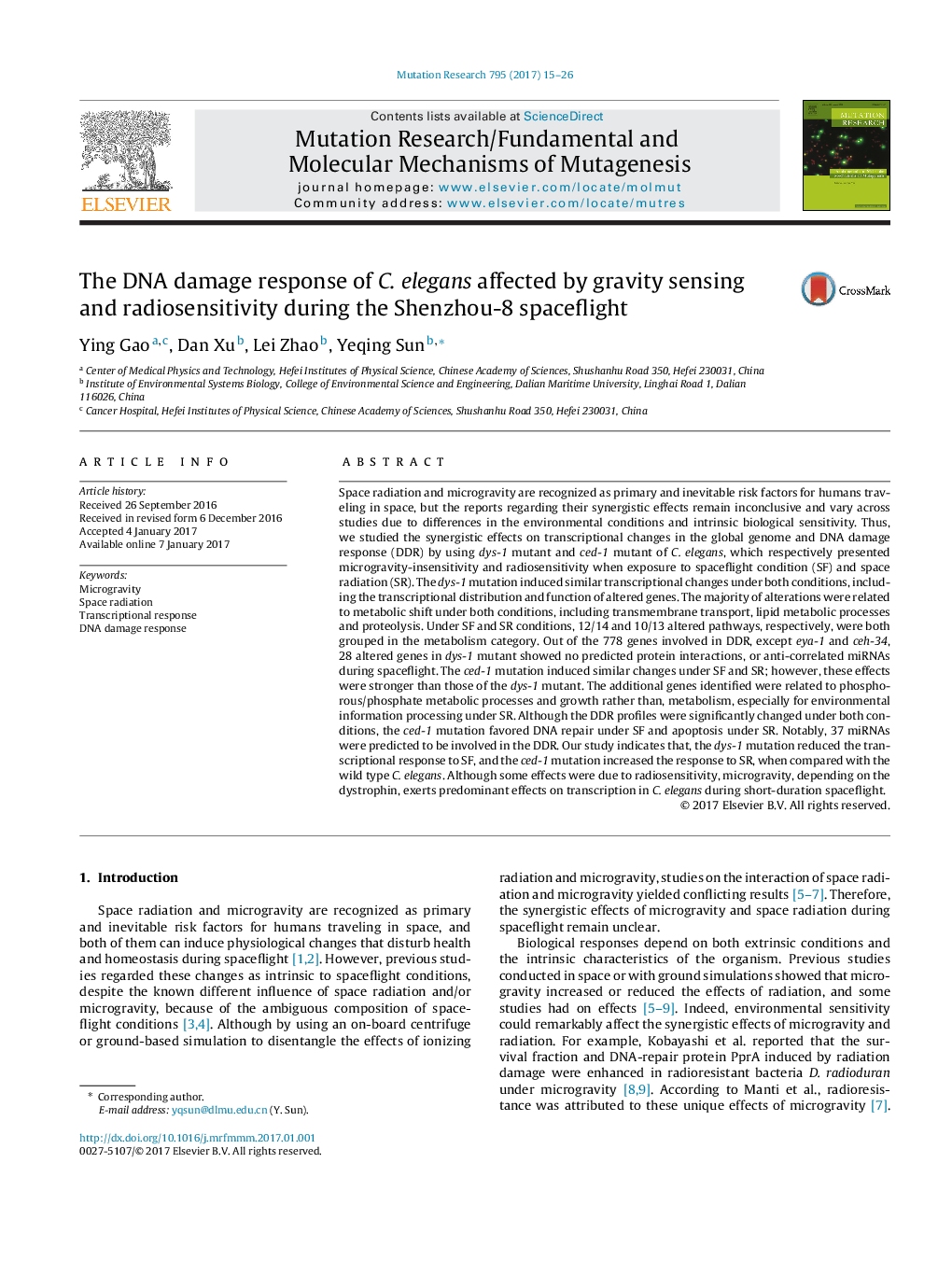| Article ID | Journal | Published Year | Pages | File Type |
|---|---|---|---|---|
| 5528697 | Mutation Research/Fundamental and Molecular Mechanisms of Mutagenesis | 2017 | 12 Pages |
•Extrinsic condition and intrinsic sensitivity both affect responses to spaceflight.•Protein phosphorylation/dephosphorylation is sensitive to μg and space radiation.•Microgravity affects transcription depending on dystrophin gene dys-1 in C.elegans.•Loss-function of apoptotic gene ced-1 leads protective responses to space radiation.
Space radiation and microgravity are recognized as primary and inevitable risk factors for humans traveling in space, but the reports regarding their synergistic effects remain inconclusive and vary across studies due to differences in the environmental conditions and intrinsic biological sensitivity. Thus, we studied the synergistic effects on transcriptional changes in the global genome and DNA damage response (DDR) by using dys-1 mutant and ced-1 mutant of C. elegans, which respectively presented microgravity-insensitivity and radiosensitivity when exposure to spaceflight condition (SF) and space radiation (SR). The dys-1 mutation induced similar transcriptional changes under both conditions, including the transcriptional distribution and function of altered genes. The majority of alterations were related to metabolic shift under both conditions, including transmembrane transport, lipid metabolic processes and proteolysis. Under SF and SR conditions, 12/14 and 10/13 altered pathways, respectively, were both grouped in the metabolism category. Out of the 778 genes involved in DDR, except eya-1 and ceh-34, 28 altered genes in dys-1 mutant showed no predicted protein interactions, or anti-correlated miRNAs during spaceflight. The ced-1 mutation induced similar changes under SF and SR; however, these effects were stronger than those of the dys-1 mutant. The additional genes identified were related to phosphorous/phosphate metabolic processes and growth rather than, metabolism, especially for environmental information processing under SR. Although the DDR profiles were significantly changed under both conditions, the ced-1 mutation favored DNA repair under SF and apoptosis under SR. Notably, 37 miRNAs were predicted to be involved in the DDR. Our study indicates that, the dys-1 mutation reduced the transcriptional response to SF, and the ced-1 mutation increased the response to SR, when compared with the wild type C. elegans. Although some effects were due to radiosensitivity, microgravity, depending on the dystrophin, exerts predominant effects on transcription in C. elegans during short-duration spaceflight.
